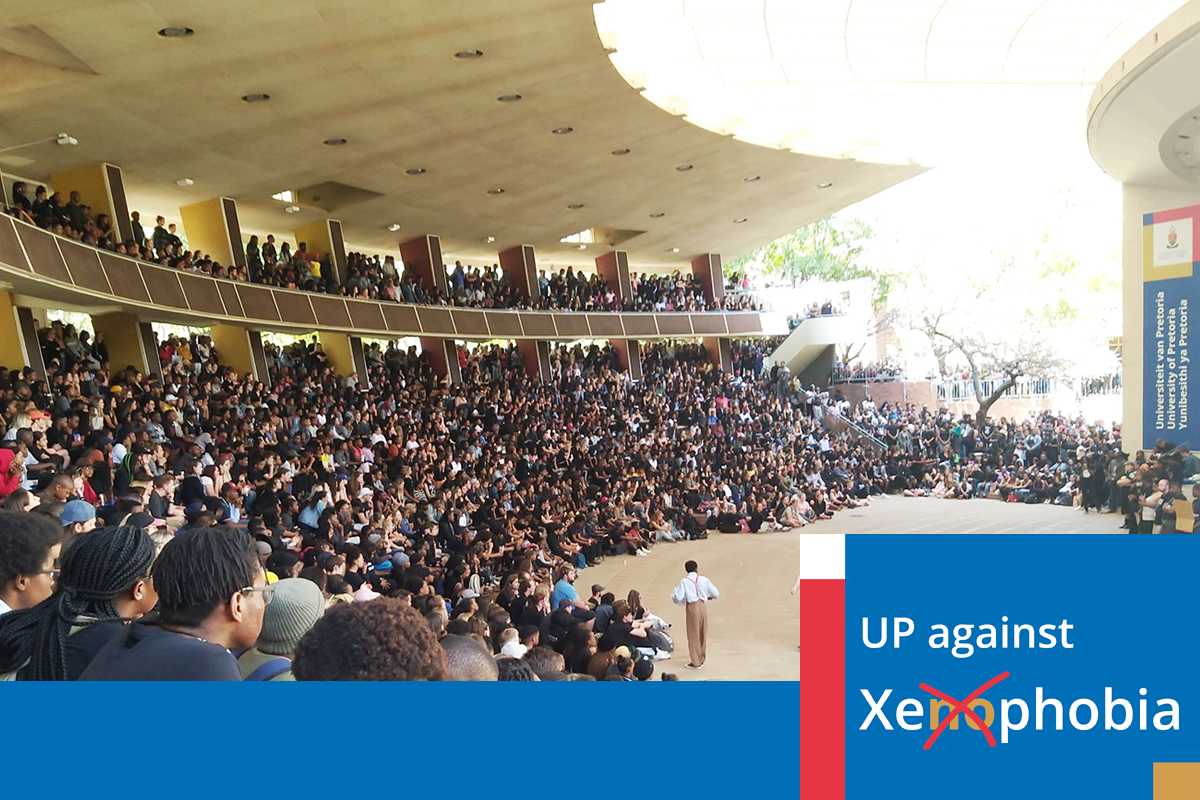The Centre for Human Rights, University of Pretoria, strongly condemns the recent xenophobic violence and attacks against foreign nationals in South Africa. The Centre calls on the government to develop a targeted intervention strategy. The cycle of outrage, followed by commitment to take action, but then inevitably fading into inaction, should be broken.
It should be recalled that the South African Human Rights Commission (SAHRC) convened a National Investigative Hearing on Migration, Xenophobia and Social Cohesion in February 2018. Regrettably, the report of this hearing has not yet been concluded and launched.
It is regretful that, in a country where diversity and the values of democracy are celebrated, attacks targeting foreign nationals have become a recurrent threat to fellow human beings. It is disappointing that the South African government has done very little to address xenophobic violence in South Africa, and it is extremely worrisome to see it resurface on a regular basis. While the National Action Plan to Combat Racism, Racial Discrimination, Xenophobia and Related Intolerance is in place, it is not very well-known and only infrequently invoked and applied.
Migration is not a crime. And as such, the South African government must strongly condemn acts that criminalise it. The Constitution of South Africa explicitly prohibits discrimination and recognises the right of everyone to life and inherent dignity. Acts of xenophobia fly in the face of the Constitution and, particularly, the provisions of the Bill of Rights.
As conflicts force some people to move from other countries, South Africa must remember its struggles against violent oppression and denounce injustices and xenophobic acts of violence perpetuated against refugees and other foreign nationals. South Africa must not be complicit in perpetuating cycles of xenophobic violence within its borders destroying the democratic fabric. Rather, South Africa must recognise that #AfricanMigrantsMatter and it must take seriously its international commitments towards migrants and other forcibly displaced populations.
In response to the xenophobic violence, the Centre calls on the SAHRC to bring its report to finality, so that it can form the basis of national dialogue on the topic.
The Centre further calls on the South African government to react in a way that shows that it is not “business as usual”. The government should:
- Unequivocally acknowledge the seriousness of violence against foreign nationals in South Africa;
- Conduct an extensive investigation into the causes of the recurring spates of xenophobic violence;
- On the basis of the SAHRC study, and taking into account the Bill of Rights in the South African Constitution, the National Action Plan to Combat Racism, Racial Discrimination, Xenophobia and Related Intolerance, the UN 1951 Refugee Convention, its 1967 Protocol and the OAU 1969 Refugee Convention, develop a suitable national intervention strategy;
- Develop adequate measures that respond to the socio-economic conditions in the state;
- Ensure that all foreign nationals are assisted with reporting and opening of cases at police stations and other public offices in order to promote access to justice;
- Apprehend perpetrators of xenophobic violence; and
- Deliberately cultivate social cohesions between South Africans and foreign nationals.
To discuss these and other related issues pertaining to migrants, the Centre will host a two-day international conference on the protection of forced migrants in Africa on 6 and 7 September 2019. The aim of the conference is to discuss the issue of forced migration in Africa, which remains a daunting challenge on the continent. The Conference will be held at the Future Africa Campus of the University of Pretoria.
Furthermore, the Centre’s Digital Verification Corps team strongly urges all to verify the authenticity of videos and images documenting attacks of xenophobia. Only share information which has already been verified by trusted media outlets and human rights watch groups who are reporting on the current waves of xenophobic violence.
Whilst playing an active role in documenting human rights violations is encouraged, we suggest the use of reverse image search tools which are easily accessible online. This is to ensure that reported attacks are indeed from the current waves of violence as there are many videos and images being shared from previous or unrelated events. The sharing of misinformation or “fake news” may also exacerbate tensions on the ground.
For more information on the #AfricanMigrantsMatter campaign, please visit https://www.chr.up.ac.za/africanmigrantsmatter
For more information, please contact:

Professor of International Human Rights Law
Tel: +27 (0) 12 420 3228
Fax: +27 (0) 86 580 5743
frans.viljoen@up.ac.za

Tel: +27 (0) 12 420 3151
Fax: +27 (0) 86 580 5743
romola.adeola@up.ac.za


